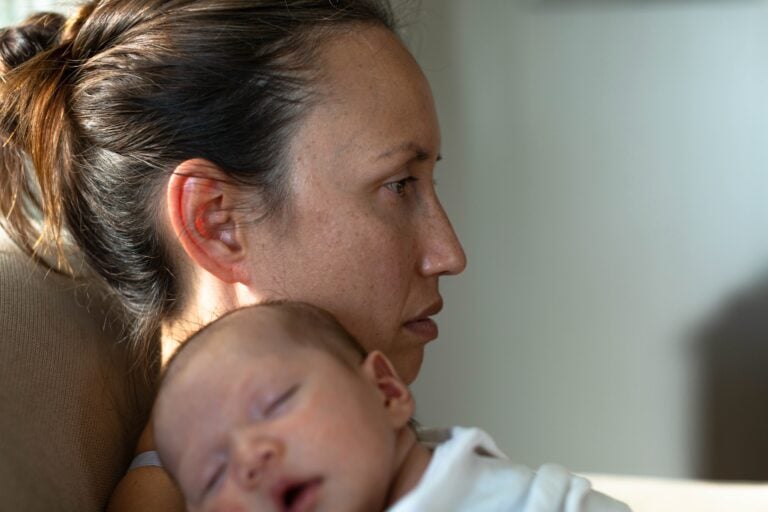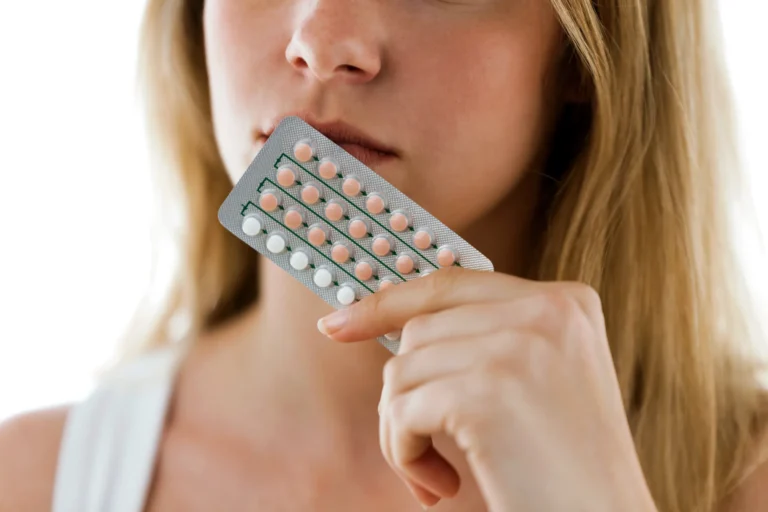Rates of depression and anxiety are on the rise, and women disproportionately suffer from both. As a woman, your menstrual cycle and fertility can play a major role in your mental health and well-being.
- If you’re looking for specific information on postpartum depression (PPD), click here.
- If you’re looking for more information on premenstrual syndrome (PMS) or premenstrual dysphoric disorder (PMDD), click here.
Birth control and depression, mood disorder, and suicide risks
A 2016 study from Denmark studied over one million women between the ages of 15-34, and found evidence that women who used birth control were at an increased risk for being diagnosed with depression and prescribed an antidepressant. Use of all types of hormonal contraceptives (including the pill, patch, ring, IUD, implant, and shot) was positively associated with a subsequent use of antidepressants and a diagnosis of depression. (Importantly, the study excluded women who had a prior history of depression.) Researchers found that adolescent girls were at the highest risk for developing depression following hormonal contraception use. Prior studies have identified a possible cause for this increased risk: changes in estrogen levels can trigger depressive episodes for some women.
In another study published in 2019 in the Journal of Child Psychology and Psychiatry, researchers found that adolescent girls who used birth control were 1.7 to 3 times more likely to develop clinical levels of depression in adulthood. One of the study’s authors explained that hormonal changes that occur during adolescence can impact the developing brain.
The largest study to date on the connection between oral contraceptive use and new onset of depression comes out of Sweden. A 2023 study published in Epidemiology and Psychiatric Sciences analyzed health data from UK Biobank, which followed more than 250,000 women from birth until menopause. Both new adult users and new adolescent users had increased risk of developing depression in the first two years after starting oral contraceptives. Adult women had a 79% increased risk, while female adolescents had a 95% increase in risk. A sub-analysis found a 130% increase in risk for adolescents and 92% increase in adults. Users who began taking oral contraceptives during adolescence also had a higher risk of developing depression later in life.
The study is unique in its accounting for potential healthy-user bias. Healthy user bias occurs when a medication causes such significant side effects that some or many participants drop out of a study. Only “healthy users” remain, and the study results reflect only their experience. This 2023 study posits that some previous studies that did not find a connection between oral contraceptive use and depression were limited by healthy user bias.
Yet another theory behind the depression/birth control connection is birth control’s effects on the hypothalamic–pituitary–adrenal axis (HPA-axis). When the HPA axis is functioning as it should, it helps us cope with stress. Women on hormonal birth control do not exhibit typical HPA axis functioning in stressful situations; in fact, their bodies react similarly to those under chronic stress. Why does this matter? Because chronic stress is a known cause of both depression and anxiety.
For even more information on the mental health and libido side effects of birth control, click here.
Click on “References” below to view scientific references for depression and its connections to birth control use.
This page was last updated on April 26, 2024.
For more information on depression, see the articles below.
-

If you developed depression after taking birth control, you might be at higher risk of postpartum depression later on
By Alex Rico • November 3, 2023Women with a history of depression on birth control may be at higher risk -

Study: Oral contraception use linked to high risk of depression in teen users
By Clare Sharp • July 28, 2023You already know hormonal birth control boasts common side effects like bloating, acne, spotting, and fatigue, to name… -

Removing My IUD Removed My Depression
By Szilvia • February 12, 2020My name is Szilvia. I am a 40-year-old quality manager and mother of two little children, living in… -

The Link between Depression and Birth Control
By Julia Hogan-Werner, LCPC • November 20, 2019In my work as a psychotherapist, one of the first things I try to address with my clients… -

Study Shows Link Between Teen Birth Control Use and Adult Depression
By Gabriella Patti • September 28, 2019A study published in the Journal of Child Psychology and Psychiatry found that teenagers who use birth control… -

Woman’s Depression and Mental Illness Symptoms Disappear After Getting Off the Pill
By Mary Rose Somarriba • February 4, 2019“After I started taking the Pill . . . I became more and more depressed. At the time… -

Is the monthly birth control ‘pill pause’ harmful to women’s mental health?
By Anne Marie Williams, RN, BSN • December 13, 2023Some researchers say the pill pause should be eliminated altogether. But are they right? -

Teens and sex: The kids aren’t alright—the connection between decreased teen sex and mental health
By Madison Ayers • October 27, 2023Part 1 of a Natural Womanhood series on teen sex. “Fewer American High Schoolers Having Sex Than Ever… -

Yes, Birth Control Affects Mental Health. Here’s Why It Isn’t Addressed
By Mary Rose Somarriba • April 30, 2021“I had severe depression with suicidal thoughts. I had no libido and I got severe fatigue. I took… -

The Powerful Link Between Fertility Awareness and Mental Health
By Julia Hogan-Werner, LCPC • April 25, 2020As a psychotherapist, you wouldn’t think I’d spend much time talking about women’s reproductive health. Instead, you might…



